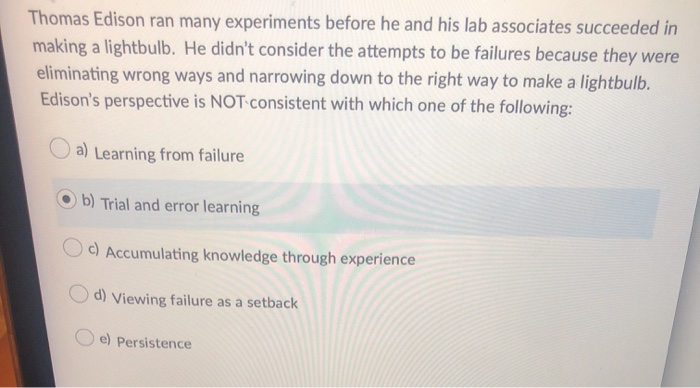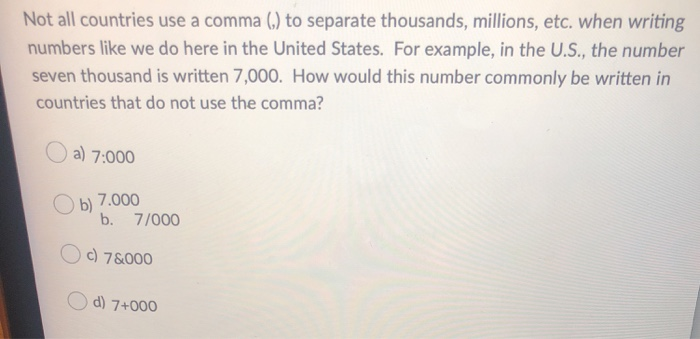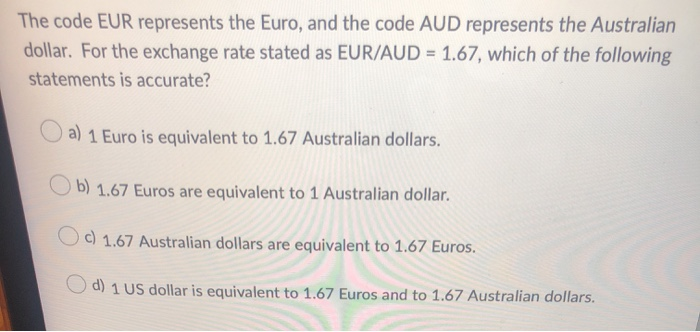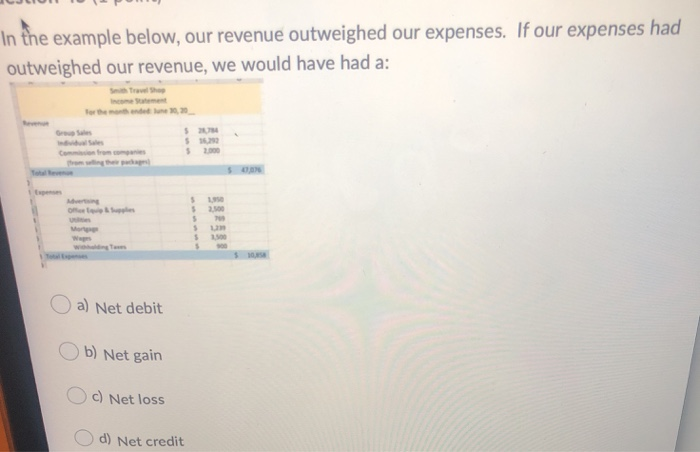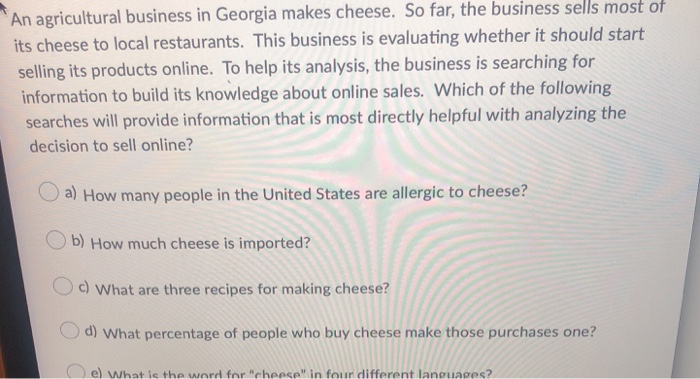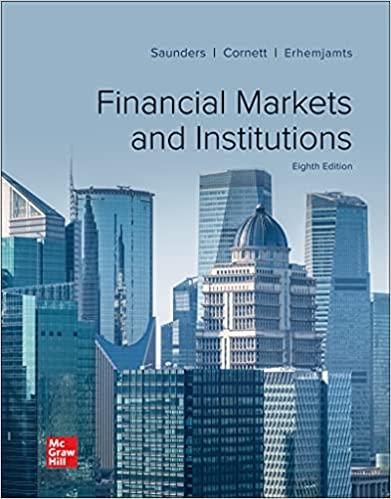Thomas Edison ran many experiments before he and his lab associates succeeded in making a lightbulb. He didn't consider the attempts to be failures because they were eliminating wrong ways and narrowing down to the right way to make a lightbulb. Edison's perspective is NOT consistent with which one of the following: a) Learning from failure b) Trial and error learning c) Accumulating knowledge through experience d) Viewing failure as a setback e) Persistence Not all countries use a comma (,) to separate thousands, millions, etc. when writing numbers like we do here in the United States. For example, in the U.S., the number seven thousand is written 7,000. How would this number commonly be written in countries that do not use the comma? a) 7:000 Ob) 7.000 b. 7/000 c) 7&000 d) 7+000 The code EUR represents the Euro, and the code AUD represents the Australian dollar. For the exchange rate stated as EUR/AUD = 1.67, which of the following statements is accurate? a) 1 Euro is equivalent to 1.67 Australian dollars. Ob) 1.67 Euros are equivalent to 1 Australian dollar. O c) 1.67 Australian dollars are equivalent to 1.67 Euros. O d) 1 US dollar is equivalent to 1.67 Euros and to 1.67 Australian dollars. In the example below, our revenue outweighed our expenses. If our expenses had outweighed our revenue, we would have had a: $ Com 50 s $ 5 a) Net debit Ob) Net gain c) Net loss d) Net credit An agricultural business in Georgia makes cheese. So far, the business sells most of its cheese to local restaurants. This business is evaluating whether it should start selling its products online. To help its analysis, the business is searching for information to build its knowledge about online sales. Which of the following searches will provide information that is most directly helpful with analyzing the decision to sell online? a) How many people in the United States are allergic to cheese? b) How much cheese is imported? c) What are three recipes for making cheese? d) What percentage of people who buy cheese make those purchases one? e) What is the word for "cheese" in four different languages
